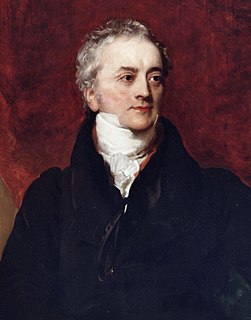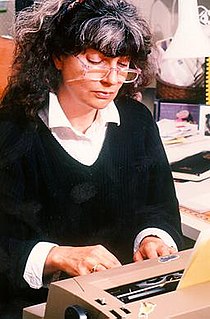A Quote by Thomas Young
Newton advanced, with one gigantic stride, from the regions of twilight into the noon day of science. A Boyle and a Hooke, who would otherwise have been deservedly the boast of their century, served but as obscure forerunners of Newton's glories.
Related Quotes
Because a fact seems strange to you, you conclude that it is not one. ... All science, however, commences by being strange. Science is successive. It goes from one wonder to another. It mounts by a ladder. The science of to-day would seem extravagant to the science of a former time. Ptolemy would believe Newton mad.
What’s your name, lad?” “Newton. Newton Pulsifer.” “LUCIFER? What’s that you say? Are ye of the Spawn of Darkness, a tempting beguiling creature from the pit, wanton limbs steaming from the fleshpots of Hades, in tortured and lubricious thrall to your Stygian and hellish masters?” “That’s Pulsifer,” explained Newton. “With a P. I don’t know about the other stuff, but we come from Surrey.” The voice on the phone sounded vaguely disappointed.
Epitaph on Newton: Nature and Nature's law lay hid in night: God said, "Let Newton be!," and all was light. [added by Sir John Collings Squire: It did not last: the Devil shouting "Ho. Let Einstein be," restored the status quo] [Aaron Hill's version: O'er Nature's laws God cast the veil of night, Out blaz'd a Newton's soul and all was light.
The highest reach of science is, one may say, an inventive power, a faculty of divination, akin to the highest power exercised in poetry; therefore, a nation whose spirit is characterised by energy may well be eminent in science; and we have Newton. Shakspeare [sic] and Newton: in the intellectual sphere there can be no higher names. And what that energy, which is the life of genius, above everything demands and insists upon, is freedom; entire independence of all authority, prescription and routine, the fullest room to expand as it will.
Otherwise I got out of bed on two strong legs. It might have been otherwise. I ate cereal, sweet milk, ripe, flawless peach. It might have been otherwise. I took the dog uphill to the birch wood. All morning I did the work I love. At noon I lay down with my mate. It might have been otherwise. We ate dinner together at a table with silver candlesticks. It might have been otherwise. I slept in a bed in a room with paintings on the walls, and planned another day just like this day. But one day, I know, it will be otherwise.
Charles Darwin [is my personal favorite Fellow of the Royal Society]. I suppose as a physical scientist I ought to have chosen Newton. He would have won hands down in an IQ test, but if you ask who was the most attractive personality then Darwin is the one you'd wish to meet. Newton was solitary and reclusive, even vain and vindictive in his later years when he was president of the society.



































